Family Based Petition
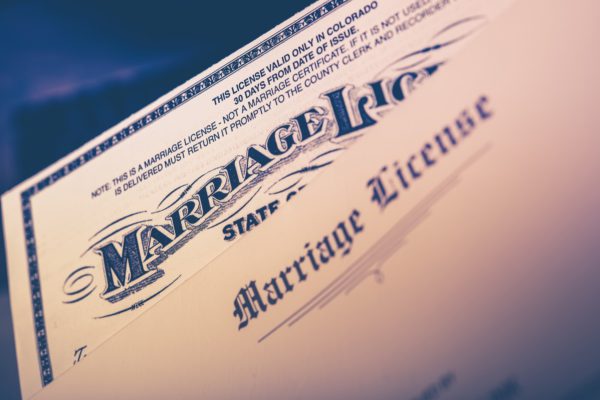
Spousal Based
If you are married to a United States citizen or Legal Permanent Resident, an I-130 petition can be filed on your behalf recognizing the familial relationship between yourself and your spouse. This may seem easy, but in fact requires a large amount of documentation and evidence proving that your marriage is real and not solely for the purpose of immigration. Remember, the I-130 Petition is just the first step in the process of becoming a permanent resident and will not, by itself, make you a resident. For more information on consular processing and adjustment of status, please visit those sections on our website (LINK?). For examples of this documentation and questions related to petitioning a spouse, please contact the knowledgeable attorneys at Lehigh Immigration.
Parent of United States Citizen
If you are the parent of a United States Citizen who is over the age of 21, your child can file an I-130 Petition on your behalf and begin the process of becoming a permanent resident of the United States. The I-130 is just the first step in the process of becoming a permanent resident and will not, by itself, make you a resident. For more information on consular processing and adjustment of status, please visit those sections on our website. The requirements for petitioning for a parent vary depending on which parent, if a parent is a biological or adoptive parent, and if the parents were/are married. Please contact the knowledgeable attorneys at Lehigh Immigration for a consultation to determine if you are eligible.


Child of United States Citizen or Legal Permanent Resident
If you are a child or adult son or daughter of a United States citizen or legal permanent resident, your parent can file an I-130 petition on your behalf, and begin the process for you to become a permanent resident of the United States. The I-130 is just the first step in the process of becoming a permanent resident. For more information on consular processing and adjustment of status, please visit those sections on our website.
The age and marital status of the intending immigrant affects the length of time it will take for an I-130 petition to become “current” or available. Children under 21 are considered “immediate relatives” and the I-130 petition can be used to adjust status to permanent resident or consular process. Children over 21 years of age are considered “adult sons and daughters” and can still be sponsored by their United States citizen or Legal Permanent Resident parent, but will have to wait longer for their immigrant visa to become “current.”. This also depends on the marital status of the child or adult son or daughter. For more information on current wait times for visa categories, please see the visa bulletin on the United States Department of State website: https://travel.state.gov/content/travel/en/legal/visa-law0/visa-bulletin.html
What is considered a “child” for purposes of an I-130?
A child can a the biological child, step-child, or adoptive child of a United States citizen or Legal Permanent Resident:
Children born in wedlock: A child whose parents were married at the time of birth. This child is considered the “child” of the US Citizen or Legal Permanent Resident parent until the age of 21 or marriage.
Children born out of wedlock: A child whose parents were not married at the time of birth is considered the “child” of the natural mother, and can be considered the “child” of the natural father if a bona fide child-parent relationship can be proven or if the child is legitimated before the age of eighteen.
Stepchild: A stepchild is considered the legal child of the stepparent during the marriage so long as the stepparent married the natural child of the parent before the child turned eighteen.
Adoptive child: Other than in certain circumstances, a child must be adopted before the age of sixteen to be considered the “child” of the US Citizen or Legal Permanent Resident Parent.
Fiance Visa
- If you are not yet married and want your wedding to take place in the United States, you can request a K-1 visa. Once approved, the K-1 visa allows the foreign national fiance to enter the United States, marry within three months of entry, and then apply for residency while remaining in the United States. The foreign national is eligible to receive employment authorization while awaiting approval of the residency application.
- Fiance visas are a great way to take that next step in your relationship and we at Lehigh Immigration will be there with you every step of the way.
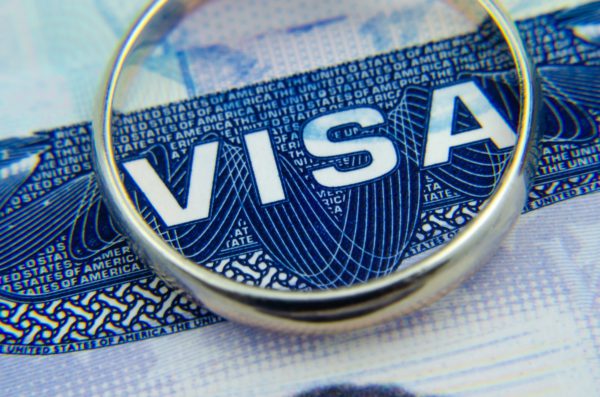
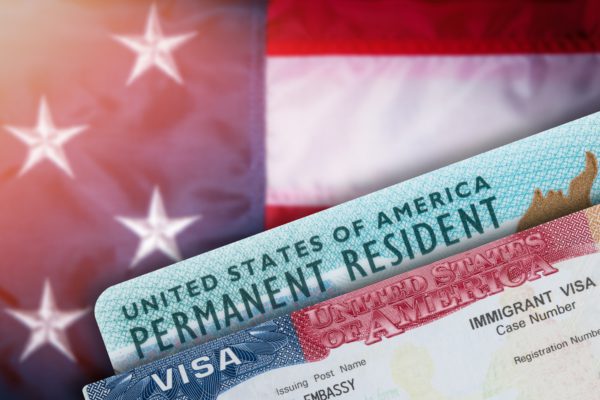
Removing Conditions Upon Residency-Get your ten year green card
If you receive your residency through marriage and have been married less than two years when you are granted residency, you will receive conditional residency status, or what some refer to as “the two year green card.” You will still enjoy all of the rights and privileges of permanent residency, including the ability to work, reside in the United States, and travel internationally for short periods of time, but your card will expire two years from the date that you were granted conditional residency. Three months before that expiration date you will need to submit a form I-751 Petition to Remove Conditions Upon Residency, signed by both yourself and your spouse, along with proof of the validity of your marriage. The process sometimes requires an interview, and can be quite a long process, but rest assured that while your form I-751 is pending, you still retain your conditional resident status, even if your card
has expired. What if I get divorced, my marriage is annulled, or spouse dies? Those who have divorced, had their marriage annulled, whose spouse has died, or who have been the subject of extreme cruelty by their petitioning spouse, or whose removal from the United States would cause extreme hardship may still file form I-751 and may still be granted permanent residency, so long as they can prove that their marriage was entered into in good faith.
Obtaining residency while in the United States
If you have been inspected and admitted or paroled to the United States by entering with a visa or other travel document, and have a United States citizen spouse or child over 21 or employer to petition on your behalf, you may be qualified to adjust your status to that of a permanent resident. If you are in valid, unexpired status and your spouse is a United States Legal Permanent Resident, he or she may be qualified to petition on your behalf. If you have been sponsored by an employer, your child over the age of 21, or your spouse of more than two years, you will be granted a permanent resident card that is valid for ten years. If you have been married for less than two years, you will be granted what is called “conditional residency,” or a card with a two year validity period. Prior to the expiration of your card’s two year validity period, you will be required to complete a form called the I-751 Petition to Remove Conditions on Residence. For more information on this process, please see our page on form I-751
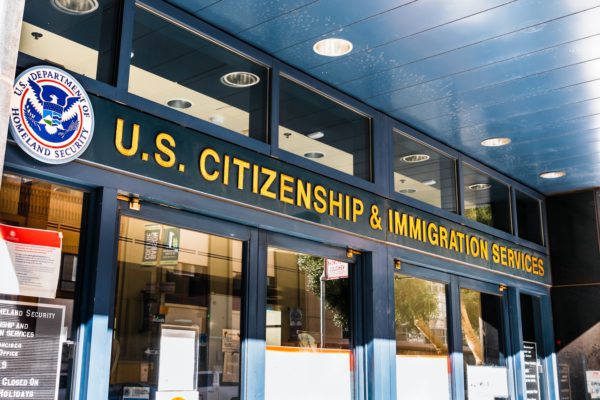

Obtaining residency at the Consulate
Those who are located outside of the United States and who have an approved I-130 or I-140 petition can complete an application called the DS-260, which once approved, is sent to the closest embassy or consulate that processes immigrant visas. Once an application is at the consulate or embassy, the person seeking to immigrate to the United States will undergo and medical examination and attend an interview prior to a grant of an immigrant visa. Once the immigrant visa is granted, the immigrant will be able to enter the United States as either a permanent resident or conditional resident.
Waivers
Unfortunately, life sometimes throws you a curveball and you run afoul of United States immigration laws. When this occurs, you will not be allowed to enter the United States or become a permanent resident and must obtain special permission, or a “waiver” to overcome this obstacle or “inadmissibility.” Luckily, there are many grounds for inadmissibility that can be waived. Below are a few of the common most issues that can be waived:
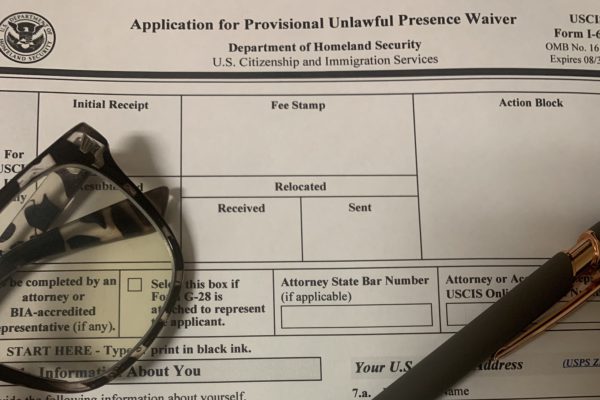
- Unlawful Presence: Unlawful presence occurs when someone enters the United States without permission or remains beyond the length of stay permitted by their visa.
- When a person has remained unlawfully in the United States for over six months, they will not be allowed to return for three years.
- When a person has remained unlawfully in the United States for over one year, they will not be allowed to return for ten years.
- The three and ten year bars to entry can be waived. If you feel that you are unlawfully present in the United States, it is important that you speak with an attorney before departing. You may be able minimize the length of time spent outside the United States by obtaining your waiver before your departure.
- Misrepresentations: When the United States thinks that you’ve made a material misstatement to obtain an immigration benefit, you will be denied entry and/or adjustment of status. Unfortunately, many people unintentionally fall into this category when they hire non-attorneys to complete their immigration paperwork and do not thoroughly review their application before signing.
- If you find yourself facing an accusation of misrepresentation, please contact Lehigh Immigration immediately. We have had great success helping clients minimize the impact of a misrepresentation accusation by obtaining a waiver and moving forward with the immigration process.
- Human Smuggling: Many people picture human smuggling as an activity that takes place in the dead of night by the use of a criminal trafficking organization. Unfortunately, the U.S. government has recently begun to apply this label to individuals who have attempted to bring their family members into the United States without the legal means to do so.
- Crimes involving moral turpitude: Many crimes which are generally considered minor or trivial in the eyes of the general public can cause serious problems for those convicted of these crimes. Luckily, the United States recognizes that a person is not defined solely by their criminal convictions and has provided numerous paths to overcome the inadmissibility for these crimes. It is important that you speak with an attorney familiary with immigration law if you think you may have a criminal record beyond minor traffic violations.
